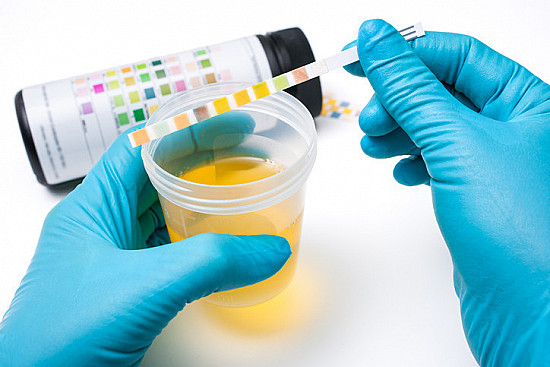Cancer survivorship: What comes next after treatment
June is National Cancer Survivor's Month — a time to recognize the unique experiences of cancer survivors. Learn what defines survivorship, what care survivors need, and how experiences differ by cancer type.
- Reviewed by Ann Partridge, MD, MPH, Contributor; Editorial Advisory Board Member, Harvard Health Publishing

Who is considered a cancer survivor?
What does it mean to be a cancer survivor? The answer may vary depending on whom you ask. And while some people who have had cancer may shy away from the term, others embrace it.
The American Cancer Society and the National Cancer Institute take a broad view: A cancer survivor is anyone who has received a diagnosis of cancer, no matter where they are in their treatment or life journey. That means that a cancer survivor may have been just recently diagnosed, in the middle of active treatment, continuing to receive care that will help them live better and longer, or had a history of cancer and are no longer receiving any treatment.
In the US, more than 18 million people are considered cancer survivors. As medical science advances and the population ages, that number is expected to expand.
What is survivorship care — and why does it matter?
A wide range of treatments — surgeries, chemotherapy, radiation, immunotherapy, hormone therapy, targeted therapy, and more — can eradicate the disease and/or extend people's lives after a cancer diagnosis. Yet the cancer itself and these lifesaving treatments may have long-lasting effects on mental, emotional, financial, and physical well-being.
Life after cancer requires a toolkit of strategies to help you meet any challenges you face. Cancer recovery is multifaceted, so survivorship care should be as well. Seeking and receiving evidence-based survivorship care can help you improve your day-to-day quality of life and all-around health.
What should optimal survivorship care include?
Your survivorship care should encompass:
- Strategies to prevent cancer and cope with after-effects of cancer treatment, whether physical or psychological.
- A schedule of testing and scans to catch any recurrence or new cancers early.
- A personal plan for healthy behaviors: Find ways to have energy balance: stay active; adopt healthy eating patterns; aim for a healthy weight range; avoid substances known to increase cancer risks, such as alcohol and tobacco; get restful sleep; practice stress-relief strategies, such as meditation, mindfulness, and deep breathing; and tend to the social connections and relationships that give life joy and meaning.
Ask your cancer care team these key questions
- Who will oversee my survivorship care?
- If I see more than one doctor or clinician — an oncologist, any specialists, a primary care clinician, a physical therapist, and others — how can I help ensure that my care is well-coordinated?
- How often are exams, tests, and scans recommended? Will this change over time?
- What type of tests are recommended — imaging scans, cancer biomarker tests, blood tests, or tissue or blood/liquid biopsies, for example — and which types of scans will be most helpful?
- How can I work with my health care team to stay informed on new recommendations or changes in my survivorship care plan?
How does survivorship care differ across common cancers?
Survivorship care plans differ depending on many factors, including age at diagnosis, treatments, and stage and type of cancer. For example, childhood cancer survivors, breast cancer survivors, prostate cancer survivors, and pancreatic cancer survivors have differing health and wellness needs, such as:
- Varied tests for screening for recurrent and new cancer guided by risks related to genes, family history, late effects of certain treatments, and other factors
- Fertility and sexual health issues, especially if cancer was diagnosed at a young age, or treatments upended sexual function or plans for a family
- Preventing or easing long-term effects of the cancer experience and/or certain treatments such as fatigue, hearing loss, a weaker immune system, heart problems, or changes in thinking skills and memory.
Honoring survivors: National Cancer Survivors Month
National Cancer Survivors Month in June is an opportunity to honor millions of cancer survivors, raise awareness of their challenges, and spotlight vital research and resources.
This year, National Cancer Survivors Day falls on Sunday, June 1, 2025. Events across the US and around the world offer chances to celebrate life and hope, applaud courage, share stories, inspire healthy actions, and uplift family, friends, and community.
Helpful links
Survivorship Care for Healthy Living, National Comprehensive Cancer Network, 2024
Survivorship Care for Cancer-Related Late and Long-Term Effects, National Comprehensive Cancer Network, 2024
Survivorship Care Plans, American College of Clinical Oncology
About the Author

Francesca Coltrera, Editor, Harvard Health Blog
About the Reviewer

Ann Partridge, MD, MPH, Contributor; Editorial Advisory Board Member, Harvard Health Publishing
Disclaimer:
As a service to our readers, Harvard Health Publishing provides access to our library of archived content. Please note the date of last review or update on all articles.
No content on this site, regardless of date, should ever be used as a substitute for direct medical advice from your doctor or other qualified clinician.















